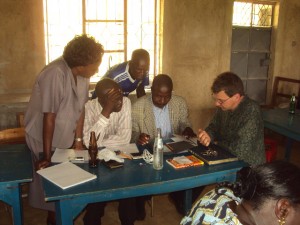The use of the kindle has greatly promoted the basic ICT skills of the teachers and students of the schools that have benefited from this pilot project. From the start, it appeared a rather complex task for the teachers who saw it for the first time. Through continuous practice, the active teachers have learnt a lot and even some pupils have acquired the basic skills. This is an encouraging trend for our learners in Oyugis.
Loading credit onto the kindle accounts caused a lot of mess and the funds in some cases were never spent wisely. One would easily be lured into purchasing books of their choice but in the long run realize they are not relevant to the curriculum. I feel this made some of the funds go to waste not really benefiting the children and teachers.
By introducing Worldreader, a great change has happened; the schools get the books directly onto their kindles. By just clicking on the archived items, a list of books appears and download with ease. I am glad; most of the books selected by teachers in Oyugis area have been posted onto the kindle.
A case in point is Nyabondo School. They were the last to receive a kindle and when I visited to help them download the books, I was surprised they had already done it, wonderful!
I see a remarkable improvement on the use of the kindles and I believe the schools will achieve a lot more knowledge and skills on the use of the kindle for e learning.
Leonard Odongo – School link programme manager.
Editorial Notes by Julian Harty:
The schools had a budget to purchase books from the Amazon store. Sometimes irrelevant or inappropriate books were bought, which depleted the budget to buy more relevant books. Thanks to World Reader’s help we provided a list of books in Swahili. The various schools collaborated to select a common list of books that would suit them. I then paid for these books and they were distributed electronically in January 2014.






